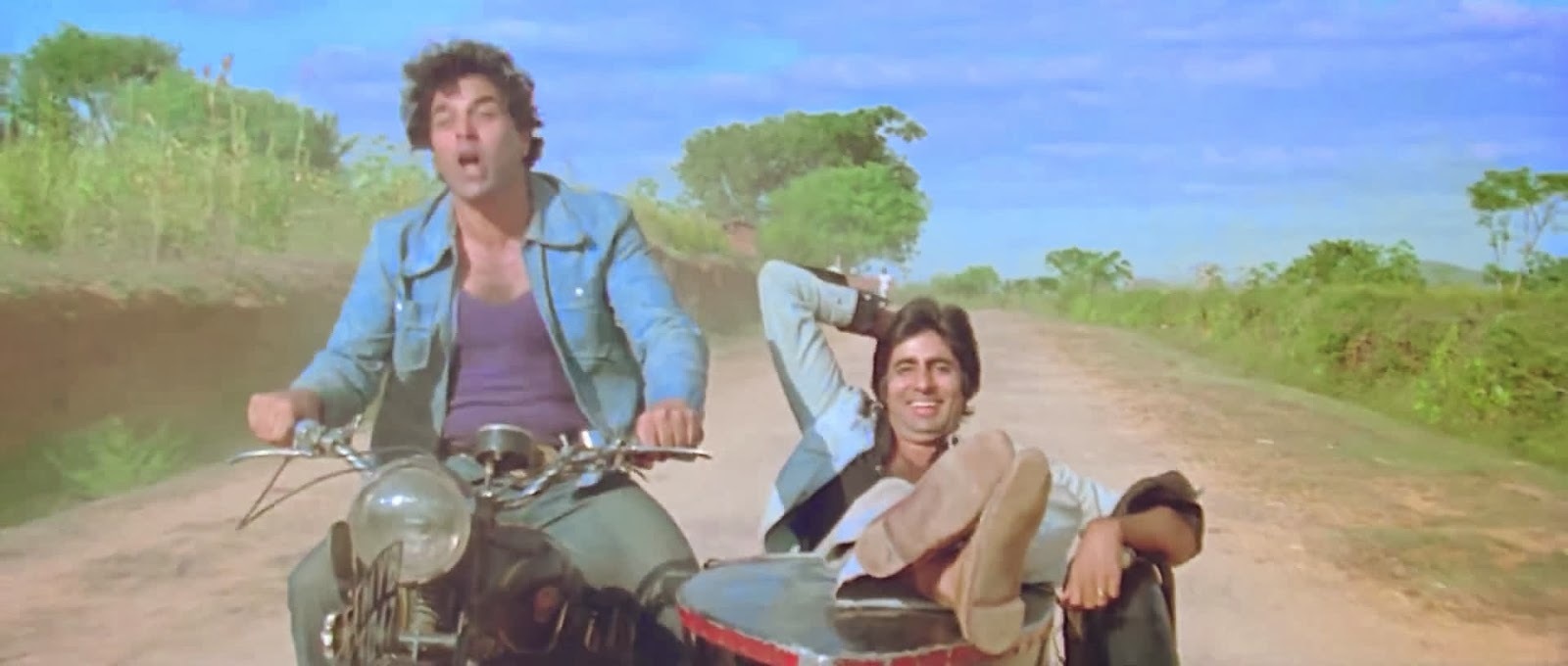Are bromances the next big thing in Bollywood?
There are many songs in the century-old Hindi film industry which extol the virtues of friendship and togetherness between two male friends. More interestingly, a majority of such films have been super successful.
Right from the days of Dilip Kumar, Raj Kapoor, Dev Anand to Dharmendra, Jeetendra and Amitabh Bachchan, to Shah Rukh Khan, Aamir Khan, Salman Khan, Hrithik Roshan, Abhishek Bachchan, John Abraham, Ranveer Singh and now Varun Dhawan, there have been countless super-duper hit films on the subject of male bonding.
Some that immediately spring to mind are Andaaz, Barsaat, Sangam, Chupke Chupke, Dharam Veer, Chashme Buddoor, Karan Arjun, Andaz Apna Apna, Dostana, Rock On, Dil Chahta Hai, Zindagi Na Milegi Dobara, Kai Po Che and Gunday. And the latest, Dishoom.
In recent times, there is a new term that has been coined for this relation: bromance – described as ‘a close but non-sexual friendly relationship between two straight men’. You are unlikely to find the word in the doorstopper-thick dictionaries as it has been enshrined in Wikipedia. Earlier, what we knew as friendship or what we used to call camaraderie, the same relationship in the digital age has new names attached to it: male-bonding, boy-bonding and buddy-connect among them.
In fact, from the looks of it, romantic films which have been the main staple of the Indian film industry are becoming passé. The concept of boy meets girl, they tumble around the park or the Alps singing a duet, flee home and marry his/her beloved a la Dilwale Dulhaniya Le Jayenge is gradually phasing out. Of course we still see a majority of movies coming out on love-based themes but it’s mostly in the backdrop and not necessarily pivotal to the plot. Besides different themes, bromance now mostly seems to be replacing romance.

Take the latest cop-buddy flick, Dishoom, for instance.
It’s not the first of its kind. We have had the cop Amitabh Bachchan and lawyer Shatrughan Sinha play the same roles in Dostana. Then there was Akshay Kumar as the cop befriending Saif Ali Khan’s actor in Tu Khiladi Main Anari. Even today, after more than two decades, we still love to watch both of them whenever they are together on a television channel. In fact, most of the bromance films are repeat watchables: Sholay was released in 1975 but even in 2016 (41 years later), we still enjoy the banter between Amitabh’s Jai and Dharmendra’s Veeru.
In the same genre, director Rohit Dhawan (brother of actor Varun Dhawan and son of director David Dhawan) makes John Abraham play cop to the rookie agent of Varun in Dishoom. In 2011, Rohit debuted with another buddy film, Desi Boyz, starring John and Akshay Kumar.
Rohit seems to be comfortable with bromance films, having grown up watching the best of ’90s bromance-cum-comedy films made by his father such as Haseena Maan Jayegi, Jodi No. 1, Partner and Do Not Disturb with Sanjay Dutt, Govinda and Salman Khan. With this background, it is all but natural for Rohit to be all too familiar with dialogues, as said by Varun to John: “Tu Munna Bhai hoga lekin mein Circuit nahin hoon; tu Batman hoga lekin mein Birdman nahin hoon; tu hero hoga lekin ab mein bhi hero hoon!”
If you watch Dishoom at a single-screen theatre, you will hear the audience not only clap but also whistle to such dialogue. The fact is that all bromance films should be viewed in single-screen cinemas, and not in the sterilised ambience of multiplexes with their sophisticated audience. Here, Varun with his easy charm sets the tone of the companionship and steals scene after scene from the handsome but wooden-faced John Abraham.
As in Desi Boyz, where two jobless guys try to earn a living, Dishoom’s cop and rookie agent set the screen ablaze with their repartee and sleek action scenes. A chase scene featuring them hanging from the helicopter of the villain Wagha (a resuscitated Akshay Khanna) is particularly great.
In Dishoom Varun and John partner to save an ace cricketer from a kidnapper on the eve of a final match between India and Pakistan. Jacqueline Fernandes sings, gyrates to raunchy songs but does not distract from the main theme of bromance.
Like most films of this genre, it’s mindless masala entertainment with cheesy dialogues, thrilling action and unbelievably good cinematography. Another plus point of the film is its length. Comparatively, it’s a short film, coming in at just over two hours. Needless to say, Dishoom adds to the list of re-watchable bromance movies.
Originally published in Dawn, Sunday Magazine, July 7th, 2016













Comments